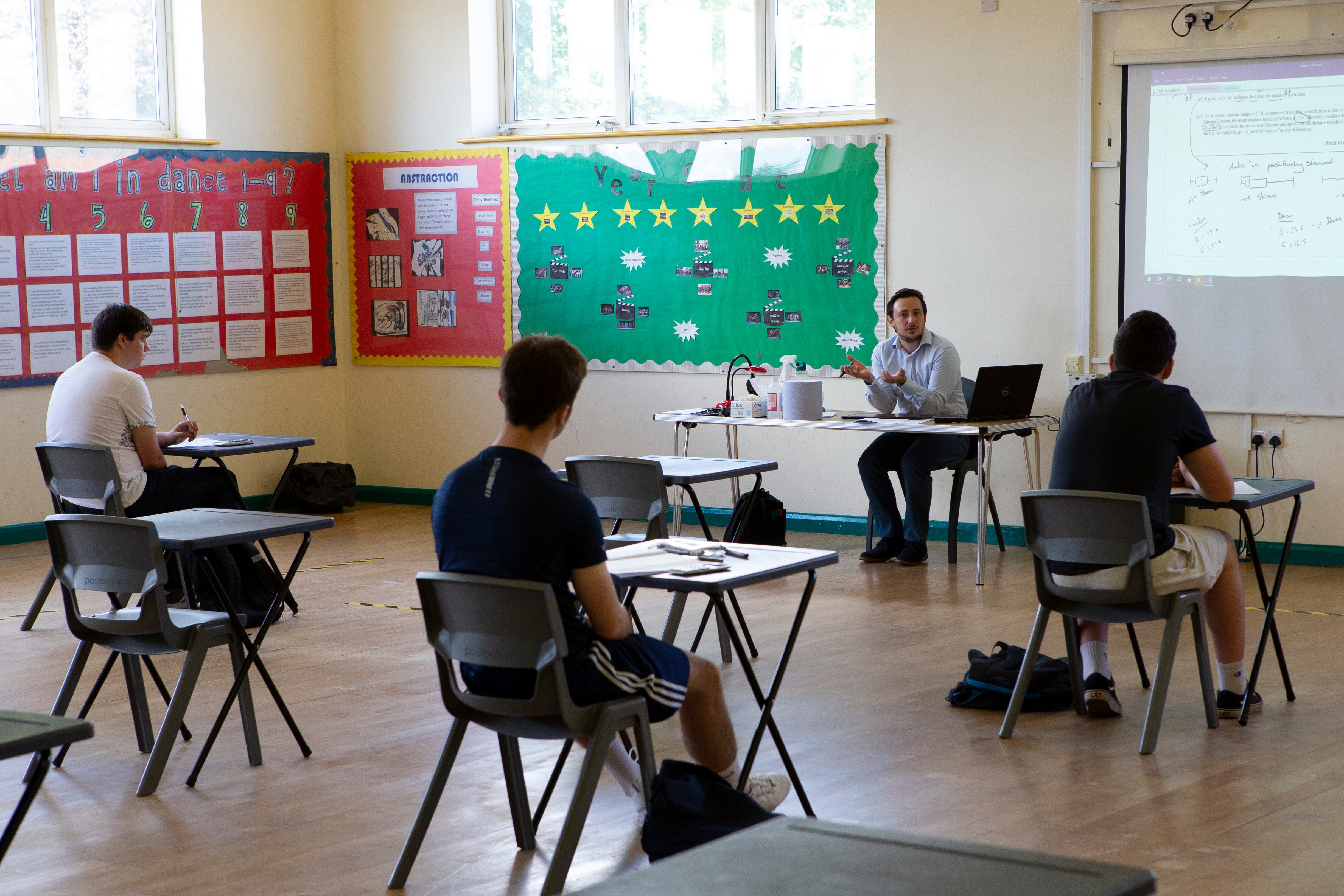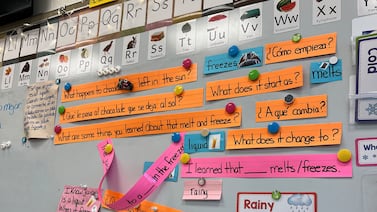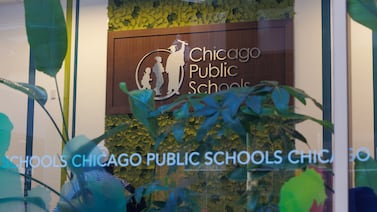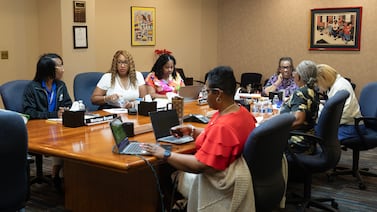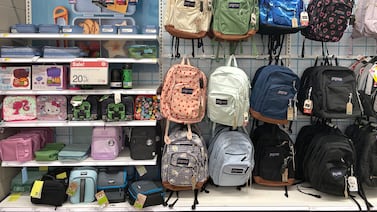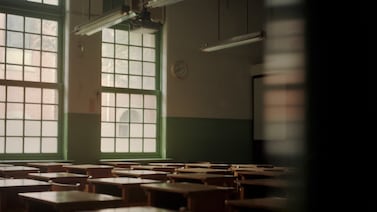After months of remote learning, New Jersey students will return to classrooms at least part-time this fall, state officials said Friday. But the schools they return to will be transformed, with students urged to wear masks and stay six feet apart from their peers, according to long-awaited state guidelines released Friday.
The 104-page guidelines set some minimum safety standards for reopening schools during the coronavirus pandemic, such as screening students and employees for virus symptoms, cleaning and disinfecting surfaces, and requiring teachers and “strongly” encouraging students to wear face coverings. They also suggest other steps schools might take to reduce the risk of infections, including keeping students in small groups, serving meals in classrooms, staggering recess times, and spacing students apart on buses.
But the guidance, which district leaders have been clamoring for as they tentatively plan for the fall, gives the state’s more than 600 districts flexibility in how they meet the safety requirements.
It will fall on each district to work through a thicket of logistical details, such as how to reconfigure classrooms and retool schedules to allow for social distancing. Districts will need to plan for some continued remote learning because the distancing requirements might prevent entire classes from attending school at the same time, and some medically vulnerable students and educators may not be able to come into school at all.
And districts must be ready to quickly close down schools if the virus flares up again this year, as health experts warn it might.
“As we cannot predict the future, districts must be prepared for the possibility that public health could require another switch to all-remote learning at any time,” Gov. Phil Murphy said Friday.
Schools will face a host of other challenges. Those include how to pay for masks and cleaning supplies, how to ensure all students have internet and computer access on days when they must work remotely, and how to convince families and employees that it is safe to return to school amid a potentially fatal virus that does not yet have a vaccine or reliable treatment.
“The return to school will pose challenges,” Murphy said in a statement, “but we are confident that New Jersey’s school districts can move forward in a way that best serves the needs of their district while also achieving a safe environment for students and staff.”
Murphy ordered all schools to shut down in March as the virus whipped through New Jersey, where it has infected more than 170,000 residents and caused more than 13,000 deaths. As the state’s near-lockdown helped contain the virus and slow its spread, Murphy has started to roll back the restrictions.
Allowing students to return to school buildings this fall after three months of remote learning last school year is a major milestone in the state’s reopening, as many parents cannot fully return to work while their children are home. But it’s also rife with risks and logistical complexities.
For instance, schools will have to devise ways to screen hundreds of students and staffers as they enter the building each morning. They will have to rearrange classrooms and mark up hallways to ensure students stay several feet apart, while overhauling their recess, meal, and physical education procedures. And they will need to ensure all students are able to learn remotely if necessary — a major undertaking in a state where an estimated 90,000 student this spring lacked home internet or computer access, according to state officials.
All these changes will not come cheaply. One analysis estimated that the average district may need to spend an additional $490 per student on safety equipment, cleaning supplies, and additional custodians and nurses. At the same time, as the state reels from the economic fallout of the pandemic, Murphy had to scrap state aid increases that he previously said districts would receive next school year. And while Congress has allocated $310 million in coronavirus relief aid through the CARES Act for New Jersey schools, some experts say that money is unlikely to cover the full costs.
“The amount of resources that districts would truly need to catch kids up from having missed this much school is pretty enormous,” said Danielle Farrie, research director at the Newark-based Education Law Center. “It seems unlikely that the limited CARES funding is going to make a difference.”
To craft the guidelines, the state education department consulted health department officials, local superintendents, and dozens of education and community groups, state officials said.
Each district’s reopening plan will be reviewed to ensure it adheres to the guidelines, officials said. Districts must share their plans with the public at least four weeks before the school year starts.
In Newark, home to the state’s largest school system, the district has already assembled a reopening task force that offered dozens of recommendations related to school operations, teaching, remote learning, and ways to support staff members and students. And even before the state issued its guidance, Newark officials indicated that students will have to wear masks and may need to attend school in shifts or on alternating days.
Big hurdles remain in Newark, including limited access to technology among many families. The district will need to purchase about 10,000 additional laptops in order for every student to have one, as the state guidelines recommend.
And many families remain wary of the health risks of in-person learning. More than 80% of Newark parents say they are concerned about their children returning to school, according to a recent poll of 416 Newark adults.
“To ensure that parents send their children to school and that kids don’t fall behind in their education, we must do everything we can to prioritize safety and restore confidence among parents,” said Shennell McCloud, executive director of Project Ready, the Newark advocacy group that commissioned the online poll.

